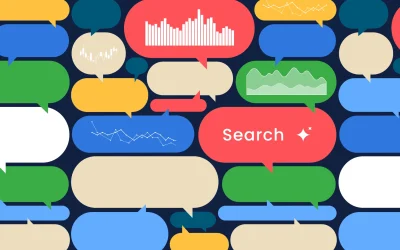Finding Balance in the Chaos
You’ve just published something on your company’s social channels, and the post is getting lots of attention. Success! You lean back in your chair and smile, relieved that you can cross that item off your task list.
Then someone messages you: The link in your post is broken! The panic you feel is instant and overwhelming. (You might even feel a touch of it as you read this!) You lurch forward, staring wide-eyed at your screen and frantically considering how you can repair the damage—or if you can…
Marketing is a high-stakes profession. Even if you’re a seasoned pro, the pressure (both acute and long-term) can adversely affect your mental health. That’s why every marketer should use the fact that May is Mental Health Awareness Month and use this month as a reminder to reflect on the importance of mental health.
The A-Train Marketing team has written this article specifically to addresses mental health challenges that plague marketers, hopefully providing some helpful insights and actionable tips for balancing professional success with overall well-being. After all, the projects we work on are important but not nearly as important as our mental health.
At A-Train Marketing, we specialize in marketing services for behavioral health organizations, so we’re passionate about this topic.
The Reality of Marketing Stress
Marketers can be a proud group. Our unofficial motto, in the face of all sorts of unexpected events and challenging circumstances, could literally be, “I’ve got this.” That determination is admirable, but it can also prevent us from being realistic about how much stress (or work) we can (or should) endure.
Because, let’s face it, the pressure comes fast, furious, and in many forms:
☹️ Tight deadlines
😦 Budget constraints
😠 Ever-changing expectations
😕 Creative blocks
👿 Campaign metrics ranging from aggressive to unreachable
😡 Information overload
🤬 Frequent technological shifts
We’ve all been there. The boss’s goals were already going to be difficult to achieve as originally defined and agreed on. Then, seemingly on a whim, they up the ante, doubling the number of leads they want to see to consider the campaign “a success.” Oh, and they also want to overhaul the online ad visuals and copy.
Or maybe leadership is thrilled with everything about a campaign, from the objectives to the creative. But just before launch, your main competitor executes an outreach initiative so similar that you’re forced to scrap yours and scramble to come up with an entirely new concept.
Challenges like these (and countless others) are all in a day’s work for marketers. They’re also why we’re seeing some truly concerning statistics in studies focused on marketing and communications professionals and stress:
83%
of employees report feeling burned out
95%
say their workload adversely affects their mental health
47%
say the majority or all of their stress comes from work
Yet, despite this kind of data, stressors often go unnoticed (or at least undiscussed) in marketing departments.
What can we all do about that? The first critical step is making a conscious effort to foster a culture of awareness and support. Solving a problem requires acknowledging that there is one.
Practical Stress Management Tips for Marketers
Beyond the philosophical shift of admitting that marketing can be a brutal profession, there are steps everyone in this business can take to offset the stresses they face, including:
Learn about and practice self-care. People sometimes dismiss self-care as overly indulgent, but anyone who commits to it will tell you: It helps! Visit our article on self-care.

Meditate. Countless studies have shown that meditation can deliver an array of mind and body benefits for people who do it regularly.

Practice mindfulness. Every minute you spend focusing on the present moment is one of relief from the pressures you face, and it allows you to resume your work more refreshed and energized. This video explains how you can build this into everyday life.

Use time-blocking techniques. This approach to prioritizing and managing tasks doesn’t lighten your workload, but it feels like it does. The structure you create empowers you to work more efficiently, getting more done in less time.

Seek help. Despite your best efforts to lower your stress level, life can still get overwhelming. But remember: You’re not alone. Make an appointment to talk with a counselor or therapist. Or if you find yourself in a mental health crisis, reach out to the Crisis Text Line by texting COALITION to 741741, or call the National Suicide Prevention Lifeline at 988.
Organizations can also play a role in supporting employee mental health in multiple ways, including:
- Offering mental health resources like counseling and wellness apps
- Implementing flexible work policies to reduce burnout
- Maintaining an open dialog around mental health
Do the steps individuals and companies take actually make a difference in employee mental health? Major companies think they do, and they’re backing that belief with companywide initiatives.
Take global management consultancy KPMG for example. They’ve developed an “energy check-in” initiative and will be rolling it out companywide to 36,000 employees. When a prestigious company that can attract top talent invests significant resources in supporting its existing workforce, you know they recognize the scope of the problem.
KPMG will use data points (like overtime logged, paid time off taken, meetings attended, and others) to identify workers they feel are at risk for burnout. If an employee is deemed to be “at risk” three times, their manager will be prompted to conduct an energy check-in. That meeting will involve getting the employee’s assessment of their work-life balance, recommending they use available mental health tools, and encouraging them to take PTO.
In a trial of the program, the company found that 77% of employees reported it was helpful and improved their overall well-being.
Another industry-leading company, Goldman Sachs, has a new program focused on creating awareness of mental health risks among top executives. VP-level and higher employees are required to participate in a 25-minute virtual mental health training program. It equips them to identify changes in workers’ behavior (absenteeism, poor conduct, etc.) and respond in supportive ways.
At companies big and small, mental health matters. It’s why supporting mental and emotional well-being—among our team members and in our community—is one of our core values at A-Train.

Marketing and Mental Health Awareness Month
“We don’t consider taking medication for an ear infection something to be ashamed of. We shouldn’t treat mental health conditions any differently.”
— Michelle Obama, former first lady
For companies like ours that are passionate about mental health, Mental Health Awareness Month is an excellent opportunity to make a positive contribution to the growing momentum around promoting mental and emotional well-being. But there’s a catch: Campaigns and initiatives centered on this critical social issue must be genuine!
Businesses simply looking to capitalize on the positive feelings consumers tend to have toward companies that care about their employees’ health and wellness can face immediate and ferocious backlash.
On the other hand, many companies truly put their hearts into their mental health campaigns. When they do, those initiatives can create a huge buzz. Five campaigns you can check out online that have created a positive impact recently are:
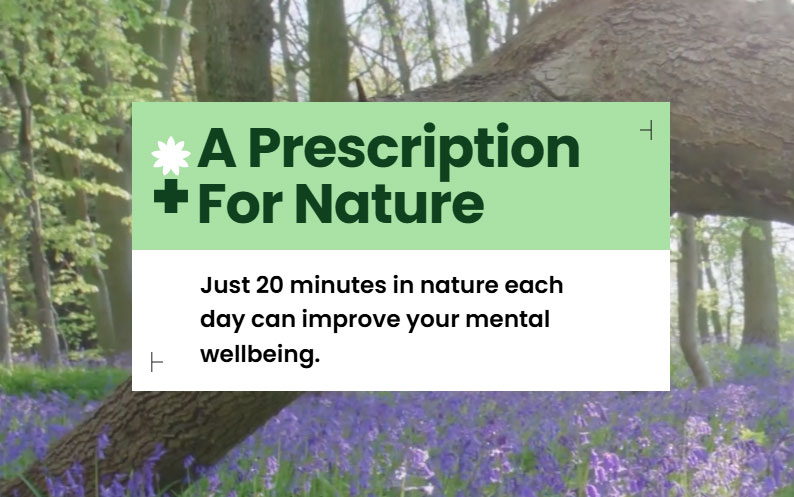
Prescription for Nature (WWF)
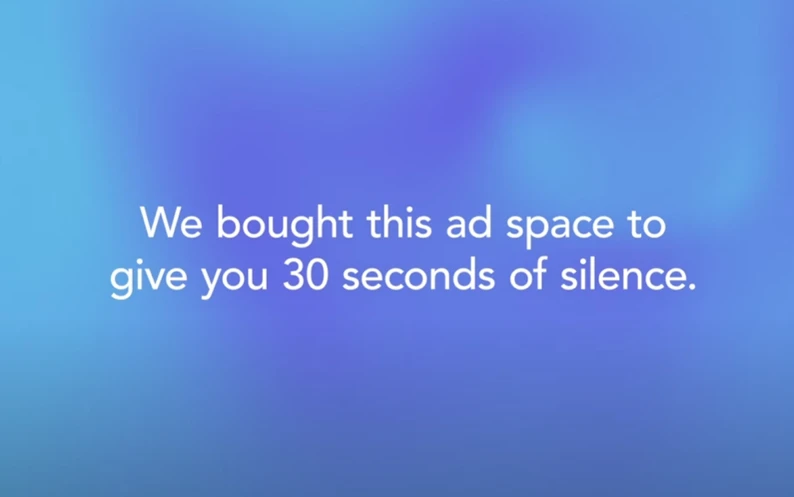
30 seconds of silence (CALM)

Take a Beat (Spotify)
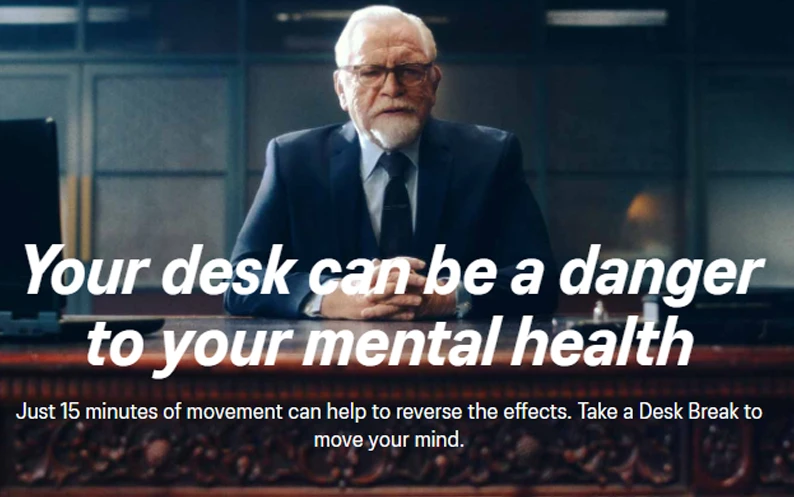
The Desk Break (ASICS)
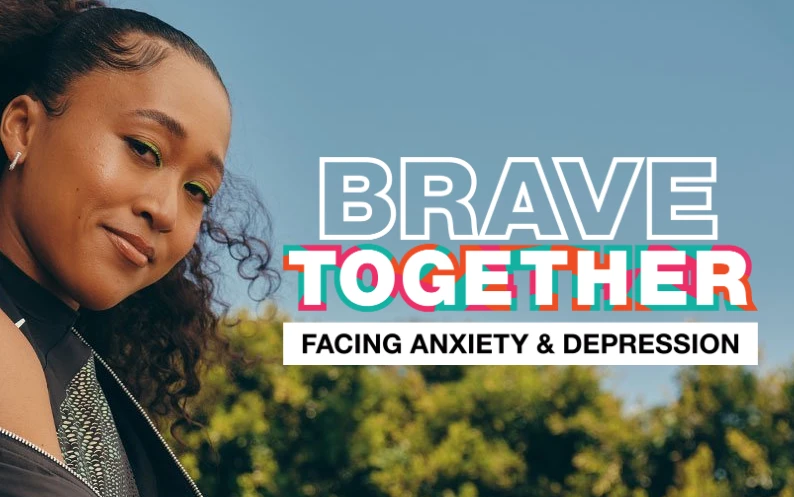
Brave Together (Maybelline)
These brands are leveraging their unique platforms to launch campaigns that find the right balance as they seek to normalize mental health conversations.
Turning Awareness Into Action
The great news is that the campaigns and companies listed above aren’t outliers. The list of brands turning mental health awareness into action is long and growing rapidly. Vogue profiled 14 of them a few years ago. Here are a couple of examples:
- This Los Angeles-based clothing and lifestyle brand focuses on mental health and positivity. They launched a Mental Health Awareness Month collection of heritage crewnecks and vintage tees in tandem with The Local Optimist, an online collaborative whose mission is to break down mental health stigma.
- A British stationery brand, the company supported Mental Health Awareness Month by emphasizing the benefits of journaling on mental health with their daily wellness journal.
- Another LA clothing business, this company created The Great Indoors loungewear collection “to bring comfort in uncomfortable times.” The company partnered with The National Suicide Prevention Lifeline, giving 10% of profits from the collection to the regional suicide hotline nearest each consumer.
If you’re considering creating an impactful campaign to coincide with Mental Health Awareness Month, keep these tips in mind:
- Consider collaborating with mental health professionals to ensure your messaging is accurate.
- Provide audiences with actionable resources, like hotlines or self-care tips.
- Focus on storytelling to humanize the brand’s message.
- Emphasize that it’s not just acceptable to talk about mental health, but advisable.
“What mental health needs is more sunlight, more candor, and more unashamed conversation.”
— Glenn Close, actress and mental health advocate
Mental Health Awareness: Highlighted in May, Essential Always
Marketing professionals must continually navigate tight deadlines, shifting priorities, and the constant pressure to innovate. They must identify and adapt to ever-evolving internal preferences while crafting engaging campaigns that cut through the noise. This relentless demand to produce fresh, impactful content, coupled with the inherent uncertainty of market trends, can create intense professional and personal stress. Recognizing and responding effectively to that stress is essential.
By prioritizing their own mental well-being, marketers not only safeguard their health but also gain clarity and compassion that enriches their work. This awareness can even inspire exceptional marketing campaigns built around a company’s mental health initiatives, provided these campaigns resonate genuinely and avoid exploitative tactics.
During Mental Health Awareness Month this May, let’s promote open dialogs within marketing teams. We encourage you to reflect on your experiences and share your favorite stress-management techniques with colleagues. By fostering a supportive environment and having honest conversations about mental health challenges, we can do a world of good for ourselves, our teams, and our communities.
